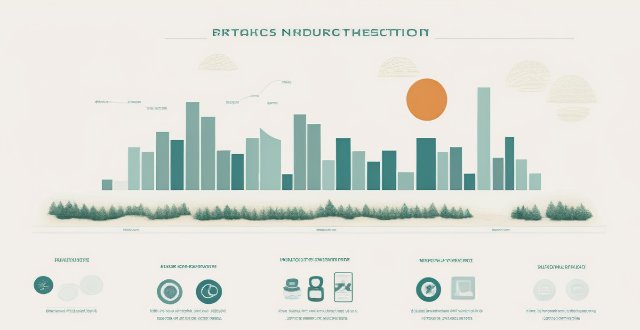The article discusses the role of climate change in increasing natural disasters and their impact on health. It explains how extreme weather events, air quality issues, disruption of infrastructure and services, and mental health impacts are all consequences of these disasters. The article emphasizes the importance of preparation and mitigation strategies to minimize the negative effects on public health.

The Role of Climate Change in the Increased Frequency of Natural Disasters and Their Impact on Health
Climate change is a global phenomenon that has been linked to an increase in the frequency and severity of natural disasters. These disasters can have significant impacts on human health, both directly and indirectly. In this article, we will explore the role of climate change in natural disasters and their effects on public health.
Direct Effects of Natural Disasters on Health
Extreme Weather Events
Extreme weather events such as hurricanes, tornadoes, floods, and heatwaves can cause direct harm to individuals and communities. For example, hurricanes can cause physical injuries due to flying debris or drowning in floodwaters. Tornadoes can also cause physical injuries and death from flying debris or collapsing buildings. Floods can lead to waterborne illnesses such as cholera or dysentery if contaminated water sources are used for drinking or cooking. Heatwaves can cause heat stroke or dehydration if proper precautions are not taken.
Air Quality Issues
Natural disasters can also impact air quality, which can have negative effects on respiratory health. For example, wildfires produce smoke and particulate matter that can exacerbate asthma and other respiratory conditions. Hurricanes and floods can also stir up pollutants and allergens that can cause respiratory issues for those with pre-existing conditions.
Indirect Effects of Natural Disasters on Health
Disruption of Infrastructure and Services
Natural disasters can disrupt essential infrastructure and services such as electricity, water supply, and healthcare facilities. This disruption can lead to a lack of access to medical care, clean water, and sanitation, which can contribute to the spread of infectious diseases. For example, after Hurricane Katrina in 2005, there was a significant increase in cases of diarrhea and other gastrointestinal illnesses due to contaminated water sources.
Mental Health Impacts
Natural disasters can also have long-lasting mental health impacts on survivors and their families. Trauma from experiencing a disaster can lead to post-traumatic stress disorder (PTSD), anxiety, depression, and other mental health issues. Additionally, the loss of homes, possessions, and loved ones can cause grief and emotional distress that may require ongoing support and treatment.
Conclusion
In conclusion, climate change plays a significant role in the increased frequency and severity of natural disasters, which can have direct and indirect effects on public health. It is essential for governments, healthcare providers, and individuals to prepare for these disasters and take steps to mitigate their impact on human health. This includes investing in infrastructure improvements, implementing early warning systems, providing access to mental health resources, and promoting awareness of climate change and its potential consequences.